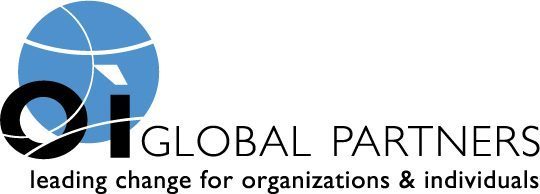Derailing behaviors can stunt careers and impede goal achievement. Executive coaching can effectively counter the negative impact of these behaviors.
 Judging – As professionals, we make judgments every day and are paid to make good ones. What happens when our judgments don’t help others or ourselves? In pursuit of speed and efficiency, we render something as black or white that could be some shade of gray; this creates problems. A coach can help you understand this self-inflicted wound by practicing curiosity.
Judging – As professionals, we make judgments every day and are paid to make good ones. What happens when our judgments don’t help others or ourselves? In pursuit of speed and efficiency, we render something as black or white that could be some shade of gray; this creates problems. A coach can help you understand this self-inflicted wound by practicing curiosity.
Holding on to the past – We can hold on to past wounds and resentment. We don’t realize that both of these weaken our capacity to reach our goals. All we ever have is now. My coach shared with me that life is truly a “series of now’s.” How would our work lives be different if we were not hamstrung by the past?
Overreacting – We regret what we say. We wish we weren’t so quick to react and then we have to clean up the mess later. Try a pause and take a breath. It is said that breathing deeply, even for a few seconds, changes our brain chemistry, so that we can see more options and make better choices. Response is always better than reaction because we send our thoughts through filters that cause the best version of ourselves to show up.
Getting stuck – It’s tough to feel like we don’t have options and that we are boxed in. It doesn’t have to be this way. There are ALWAYS more options than we can see. When we remind ourselves of that truth, we begin to seek them out, uncover and discover what we have been missing.
Commiserating – That strong sucking sound that you hear from the breakroom is negative co-workers wanting to drag you into their morass of self-pity. A strong coach can help their client with techniques to counter the non-value adding activity of commiseration.
Stressing Out – What is in our control vs. outside of it? Much of our stress is self-induced but it is hard to both see that and admit to it. Coaching techniques of letting go, releasing the past, being in the present, and reframing can be used to reduce stress levels.
Blaming others – Blame is sinister, unproductive…and it is rampant. It happens when our focus is not where it should be. By focusing on delighting a customer and finding solutions, we don’t have time nor tolerance for blame. Your coach can assist you with increasing personal accountability and learning the difference between a reason and an excuse.
Being avoidant – Conflict avoidance, procrastination and diverting our attention to minutia are all close cousins of this derailing behavior. We can kid ourselves that avoidance doesn’t impact us, but it does. It requires effort and energy and ultimately undermines our confidence in our ability to get things done.
Interrupting – It can come from disrespect, lack of patience and stress. The problem is that even when we get our point across, we have caused some harm when we interrupt. Some chronic interrupters are aware that they do it while others are not. Your coach can help both types of interrupters with the appropriate techniques.
Listening in one dimension – Many of us think that we are good listeners, but in fact we are formulating what we want to say next vs. truly listening. Great listeners focus on the other party in the conversation, listening for what is unsaid, not judging the listener, while paying attention to feelings along with words.
Retaining an executive coach can help us become more aware of these behaviors and help us create plans to address them once and for all.
Evan Roth is a certified Executive Coach and Consultant for Innovative Career Consulting, the Denver- and Cincinnati-based OI Partners firm. He enjoys helping senior executives to thrive in the corporate world. You can contact him at eroth@oiglobalpartners.com or 1-855-865-4400.
Share this post:

No responses yet